Doodle God: Xbox Windows Phone Review
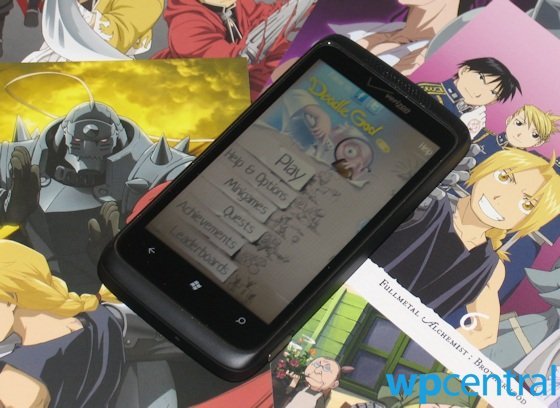
Windows Phone already had an Xbox Live ‘god’ game before JoyBits’ Doodle God graduated from indie to Xbox Live status. That title was Pocket God, an ill-supported and underwhelming port of the hit iOS game. Regardless, Doodle God and Pocket God couldn’t be any more different. Pocket God is all about teasing hapless worshippers via minigames, whereas Doodle God focuses on the creation aspect of godhood. As it turns out, creating a world and populating it with new things takes a sharp mind and plenty of trial and error. No wonder that one guy needed a rest after six days!
Genie in a bottle
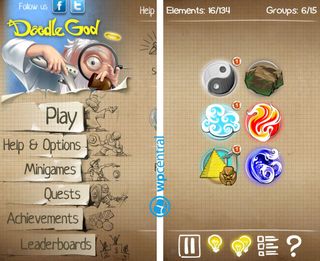
According to Wikipedia, Doodle God is based on a couple of older games about alchemy. Thus you really don’t do anything but mix things together and see what comes out in this one. Still, the structure of the game certainly mirrors what a universal creator would go through when starting from scratch. As the titular Doodle God (DG for short), you start with access to four basic elements: earth, water, fire, air, and heart. Scratch the last one; that’s Captain Planet. Anyway, from those simple ingredients, an entire world and everything in it will eventually spring out.
It doesn’t take long to learn Doodle God’s alchemic interface. Simply tap on a group to expand it and see the sub-elements it contains. Those four basic elements I mentioned double as both groups and individual elements, meaning the fire group will eventually contain plain old fire, lava, and other hot things, and so on. Whenever a newly-discovered element doesn’t fit into an existing group, a new group forms. Actually remembering which group contains what becomes progressively harder as groups and elements pile up. That could be by design, but I would prefer a more streamlined way to track everything.
Combining elements couldn’t be simpler. At any given moment, you can have up to two groups open on-screen. Either drag one element to another or simply tap the first element and then the second, and they’ll mix. Some things simply don’t mix and you’ll get an error sound. But assuming they combine successfully, one or more new elements appear on-screen and are added to your pool of resources. Sometimes elements within the same group can be combined, and on rare occasion you’ll need to mix two of the exact same element. For instance, Computer + Computer produces The Internet. While we're on the subject of elements (which eventually number in the hundreds), a small complaint: the Windows Phone version of Doodle God quite unnecessarily censors Sex and Vodka (truly two of the greatest creations in the world) from the game.
Confucius says
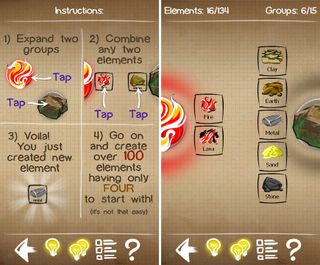
If we can't have fun knocking boots or knocking one back, how then? Well, one of the most fun aspects to creating new elements is that just about every fresh discovery is accompanied by a relevant quote or proverb. Just a small sample: make a snake and you’ll see that Steven Wright once said “Even snakes are afraid of snakes.” So true! And Muppets fans will enjoy reading, “It’s not easy being green,” attributed to a Kermit the Frog. These tidbits instill humor and personality into what otherwise might’ve been a dry experience. They’re not perfect, though. Punctuation makes like ending dependent clauses with periods, a few repeated quotes, and even the occasional lack of a quote for a new element sometimes pop up. Still, these mistakes are uncommon enough not to diminish the experience.
Four parts make a whole
Doodle God is broken up into four episodes, all of which are proceeded by a clever narrated introduction. There’s no real distinction between each episode; once you discover all of that episode’s elements, you’ll end up in the next one with a new number to strive for. Each episode provides access to the elements that came before – only the ability to make new combinations differentiates them. As such, I found the division unnecessary. It’s a relic of the original development process in which the episodes were actually free content updates, and no longer needed. Then again, the brief story sequences do serve as nice milestones.
Quests
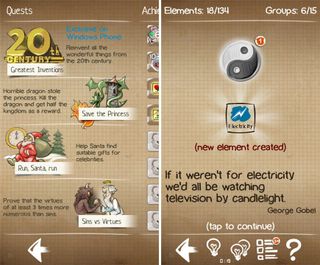
After completing the main game, four separate quests provide additional alchemic thrills: Save the Princess; Run, Santa run; Sins vs Virtues; and Windows Phone-exclusive 20th Century Greatest Inventions. Each of these has a unique goal, such as making gifts (specific elements) for six creatures in the Santa quest. Regardless of the objective though, you’re basically just trying to discover all the elements you can, just like the main game. But the starting elements and elemental grouping are completely different in every quest, instilling a few drops of extra challenge and vigor to the established alchemic formula.
Get the Windows Central Newsletter
All the latest news, reviews, and guides for Windows and Xbox diehards.
Minigames
Progressing through the main game also unlocks a couple of minigames based on the core alchemy mechanic, not unlike the minigames in Plants vs. Zombies. The minigames included here, MatchTrix and Bejoined, are based on falling block puzzlers like Columns and static match-3 games ala Bejeweled, respectively. Neither one works particularly well since figuring out or remembering what elements match up with each other on the fly while also trying to clear the board is kind of a headache. The minigames lack Achievements too, so most players will probably just sample them once and then move on.
Achievements
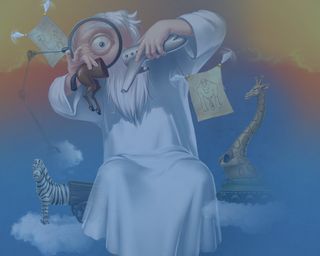
Doodle God includes a fair number of completion Achievements for reaching new episodes in the main game and knocking out each Quest. There are a couple of problematic Achievements for completing the game without using hints, though. See, during the main game you can press a light bulb icon at the bottom of the screen to reveal a combination you haven’t made yet. Unfortunately, the game doesn’t ask whether or not you really want to use the hint, so it’s far too easy to hit the bulb and disqualify yourself from the Achievements by mistake.
Even worse, resetting the game’s data won’t make players eligible for the Achievements again. If you tapped that bulb, you'll have to actually delete and reinstall the game and start fresh to get your GamerScore. It’s a frustrating combination of oversight and glitch on the developer’s part, but not insurmountable. JoyBits has promised to fix the problem - along with adding badly-needed Fast App Switching support – in a future update.
Overall Impression
Doodle God is an interesting game that revolves entirely around trial and error. If playing without a guide, you basically have to combine things over and over and over while trying to keep track of what combinations you’ve already attempted. I found that core mechanic invigorating initially, but it became wearying as the catalog of elements and groups piled up into Brobdingnagian quantities. Still, people with even more scientific minds than my own might have a blast charting it all out. Those folks will enjoy the sequel Doodle Devil, currently available as an indie title. The third series entry, Doodle Farm, hasn’t reached Windows Phone yet. But even if you don’t care for endless alchemic experiments, Doodle God sells for only 99 cents nowadays. Thus Achievement hunters shouldn’t hesitate to give godhood a whirl.
Doodle God costs 99 cents and there is a free trial. Discover it here on the Marketplace.
Update: The price increased to $2.99, which is really too much for this particular game.
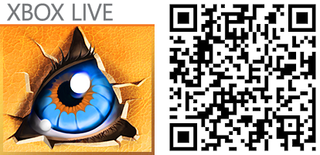
Paul Acevedo is the Games Editor at Windows Central. A lifelong gamer, he has written about videogames for over 15 years and reviewed over 350 games for our site. Follow him on Twitter @PaulRAcevedo. Don’t hate. Appreciate!
